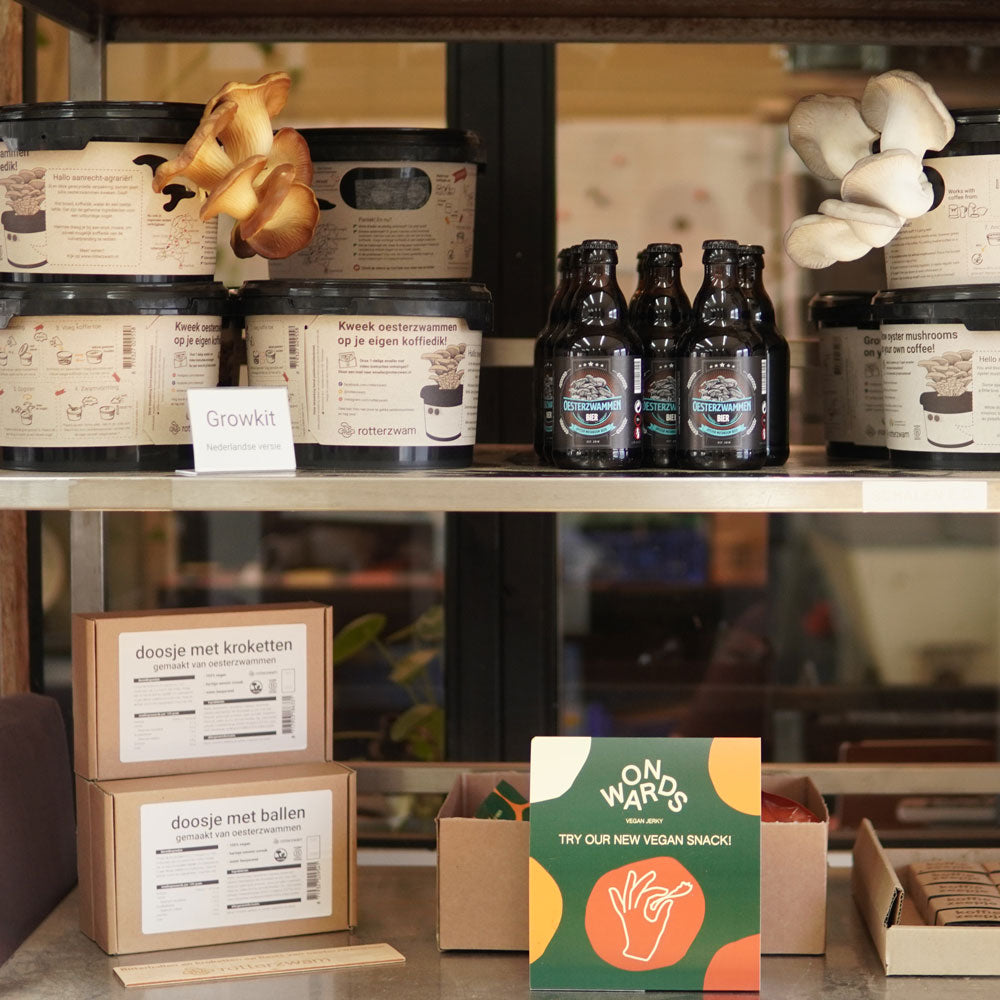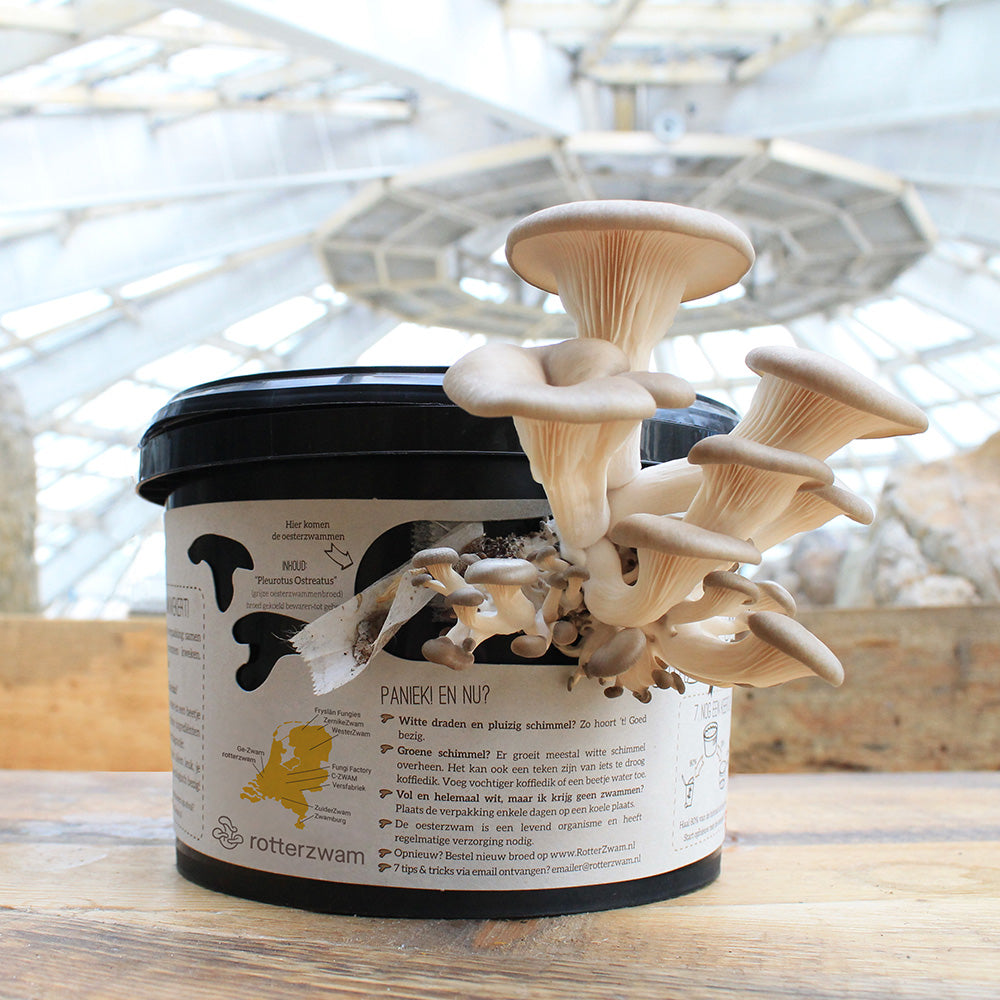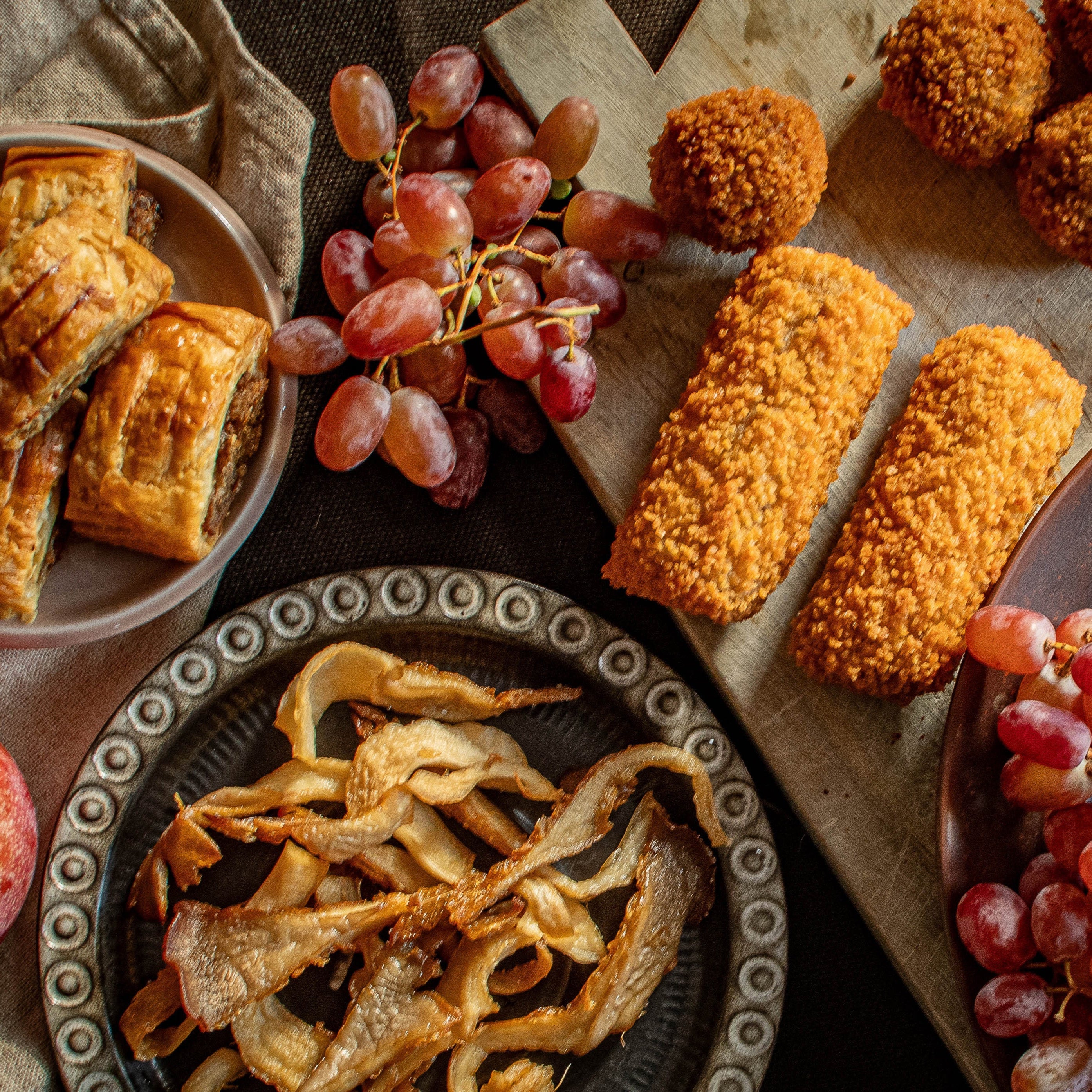soil

Rotterzwam believes in a society that closes cycles, makes maximum use of raw materials and consumes more vegetable than animal proteins.
Back to the Bottom
From June 2019 to November 2021, large-scale testing was conducted on spreading three different residual flows on a field.
In this project, we've explored and learned a great deal. In this blog series, we'll take you on our journey through waste legislation and the associated search (also known as "the soap opera"), moldy containers full of substrate, soil surveys, impact measurements, and ultimately, of course, the question: is it a good idea to use the residual flows on the soil?
Save your coffee grounds?
Rotterzwam has been saving coffee grounds from incineration since 2013. We can do the same for your organization. We'd be happy to tell you more about our coffee grounds offering and how we can help you become more sustainable and fully internalize your waste processing costs.
Video report
We recorded a large part of the project's execution. The collection and spreading of the coffee grounds and spent substrate was a unique event and a significant milestone in the [probable] elimination of waste status for the three residual streams from the project. A video report of almost 10 minutes has been created from the footage.
Final report
We've made some interesting findings. Conclusions that put the current way of working (burning large amounts of organic material) in a completely different light. You can download the findings from the research project on the use of organic waste streams in the soil via the button below.

Alle emails op een rijtje
Kan je niet wachten om alle emails opgestuurd te krijgen, en wil je graag alle informatie van tevoren op een rijtje hebben? Daarvoor hebben we hier een overzichtslijst met alle informatie voor je neergezet.
introductie & benodigheden
Nederlandse versie
English version
De eerste laag koffiedik en mycelium
Meest voorkomende problemen
Opnieuw opstarten



